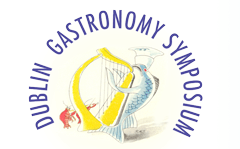Start Date
29-5-2024 9:45 AM
End Date
29-5-2024 10:00 AM
Description
During an oral history research on the larger European open-air market in Turin, called “Porta Palazzo,” Tunisian people replied to my questions using the Tunisian-Arab word ghurba in order to define their condition of being in diaspora. Ghurba is a specific emotion about the condition of separation and estrangement. It is used for describing the situation of being a foreigner, migrant, illegal, invisible in a land away from home. For this reason, it evokes a state of abandonment, loneliness, isolation but also it is used for yearning a reconnection and socialization with an idea of community based on memories of the past in Tunisia. This multifaceted emotion is deeply rooted in the condition of being out of place – to be positioned neither here, in Europe, nor there, in Tunisia – and conscious of the enduring liminal position. Etymologically speaking, ghurba has the same root of gharb which means, in Arabic, the West or something connected to this social context. During the collection of oral interviews, many interviewees – in particular, Tunisian women – mentioned ghurba in relationship to food. These women usually sing traditional songs, cook specific plates in order to face this feeling of love for the homeland left, bitterness for the situation in Europe and melancholia. Different breads, almond cakes, dates, rose water, orange blossom, sesame, and honey: these are some gastronomic references to ghurba. As pointed out by Miriam, one of the interviewees, “ghurba is a tightrope around an emptiness that inhabits the chest, and which cannot be filled by anything. It is the condition of one who is elsewhere and remains anchored to a lying past, which no longer exists and perhaps never was.” Cooking some dishes of the past is the powerful antidote to ghurba: these plates bring the family together around the table, feeding the hunger for a past lost and a future never found. This paper is dedicated to deal with ghurba through oral memories collected during the research in Turin. In particular, my aim is to pay attention and interpret the role of memory in relation to food, music and ways of evoking the past.
Creative Commons License

This work is licensed under a Creative Commons Attribution-NonCommercial-Share Alike 4.0 International License.
DOI
https://doi.org/10.21427/xbnf-zz74
Included in
Food Studies Commons, Migration Studies Commons, Oral History Commons, Other Anthropology Commons, Other Arts and Humanities Commons, Other Languages, Societies, and Cultures Commons, Other Sociology Commons, Social and Cultural Anthropology Commons, Sociology of Culture Commons
To the taste of Ghurba: Diasporic food and oral memories of Tunisia in Europe
During an oral history research on the larger European open-air market in Turin, called “Porta Palazzo,” Tunisian people replied to my questions using the Tunisian-Arab word ghurba in order to define their condition of being in diaspora. Ghurba is a specific emotion about the condition of separation and estrangement. It is used for describing the situation of being a foreigner, migrant, illegal, invisible in a land away from home. For this reason, it evokes a state of abandonment, loneliness, isolation but also it is used for yearning a reconnection and socialization with an idea of community based on memories of the past in Tunisia. This multifaceted emotion is deeply rooted in the condition of being out of place – to be positioned neither here, in Europe, nor there, in Tunisia – and conscious of the enduring liminal position. Etymologically speaking, ghurba has the same root of gharb which means, in Arabic, the West or something connected to this social context. During the collection of oral interviews, many interviewees – in particular, Tunisian women – mentioned ghurba in relationship to food. These women usually sing traditional songs, cook specific plates in order to face this feeling of love for the homeland left, bitterness for the situation in Europe and melancholia. Different breads, almond cakes, dates, rose water, orange blossom, sesame, and honey: these are some gastronomic references to ghurba. As pointed out by Miriam, one of the interviewees, “ghurba is a tightrope around an emptiness that inhabits the chest, and which cannot be filled by anything. It is the condition of one who is elsewhere and remains anchored to a lying past, which no longer exists and perhaps never was.” Cooking some dishes of the past is the powerful antidote to ghurba: these plates bring the family together around the table, feeding the hunger for a past lost and a future never found. This paper is dedicated to deal with ghurba through oral memories collected during the research in Turin. In particular, my aim is to pay attention and interpret the role of memory in relation to food, music and ways of evoking the past.
